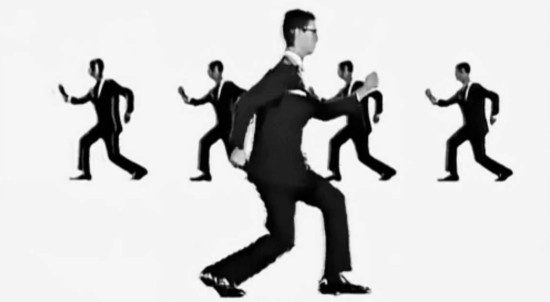There’s a lot going on in the world right now.
There’s a horrifying total war being fought in Israel and Gaza with little apparent prospect for anything other than escalation and death, death, and more death.
“You’re Not Allowed to Kill Civilians” I say, again, but no one seems to care or to believe it.
The main response to that is “Says who? There are no rules.” And that’s not coming from relativists or deconstructionists or secular humanists or existentialists or any of the other irreligious folks I was warned were threatening the very foundations of morality itself. It’s coming from the standard bearers of all of the major Abrahamic religions.

Meanwhile, here at home, the apparent Republican nominee for the 2024 presidential election is using explicitly eliminationist Nazi language and vowing to sweep away every check and balance to become the most authoritarian leader in American history.
These things are important. Way, way, way more urgently important than some weird abstract discussion about the legacy and place in history of some 18th-century provincial theologian.
So why did I spend yesterday writing 2,000 words about what is probably a tangential aspect of the ongoing discussion of Jonathan Edwards? When there are so many more urgent problems, why do I keep getting sucked into this seemingly endless Jonathan Edwards: Enslaver conversation?
It’s because I’m a liberal. Because I believe in liberal democracy.
Because I believe, in other words, that the best solution to and protection against the awful crises mentioned above is an actual, tangible commitment to multi-ethnic, pluralistic liberal democracy in which the rights of all people are protected by laws that are not contingent on the outcome of the next election.
That’s a hard thing to believe in because it is something that has almost never actually existed.
My own country, the United States, regards itself as the foremost champion of this idea, even though it’s not something my own country has ever put any sustained effort into attempting itself. Our Founding Fathers very explicitly rejected the idea of multi-ethnic democracy, enshrining white supremacy in the Constitution that forms the foundation of our laws.
It took more than fourscore years and a bloody civil war to re-found this country, re-writing that Constitution into something that no longer prohibited real democracy and that finally, begrudgingly allowed our “Bill of Rights” to be applied to everybody.
But just because that was now allowed didn’t mean it actually happened. We had a brief spasm of commitment to that idea — to actually enforcing those rights for everybody. That was never fully implemented or fully funded, and we gave up on it entirely after a decade or so. That was “Reconstruction,” which our public school textbooks still teach our children failed because of “overreach” — because the idea of actual democracy in which the Bill of Rights applied equally to everybody was too dangerously radical and “punitive” to those for whom it had previously been exclusively applicable.
It took another century before the Civil Rights Movement shamed us into finally passing legislation to enforce the new Constitution. That was just before I was born and ever since — for my entire lifetime — American politics has been preoccupied with and shaped by legal and political efforts to overturn, overrule, dismiss, and disregard everything that Civil Rights Movement achieved.
My country still cannot or will not fully commit to real democracy and its prerequisite of a Bill of Rights that applies equally to all people. One clear demonstration of this failure came in the first decade of this century when we declared that we would be “promoting democracy” in the two countries we chose to invade. We taught them about voting, but not about that prerequisite Bill of Rights. And so they had elections in which the majority were empowered to deny the fundamental rights of the minority. That counterfeit form of “democracy” quickly — and predictably — led to civil war.
For all of our talk about democracy and elections, we basically set the stage in Iraq for a replay of the Thirty Years War, except with a bit more voting and with the local major sects playing the roles previously played by Protestants and Catholics.
That’s how this works. Democracy is impossible if recognition of your basic, fundamental human rights are contingent on the outcome of the next election. “Government of the people, by the people, for the people” is impossible if one’s status as “people” can be revoked at any time.
It seems to me that genuine, multiethnic and pluralistic democracy and a non-contingent guarantee of basic legal and civil rights for all is obviously preferable to any alternative. Anything else seems to lead, inevitably, to violence and war.
I’m trying to state that in tepidly pragmatic language, avoiding more explicitly moral arguments, but those moral arguments also seem unavoidable. Anything less than full legal equality and genuine democracy will lead to violence because it will be unjust and the victims of that injustice will — justly — find it intolerable.
Moral considerations are also necessary here because we are not abstract, hypothetical Rawlsian creatures. Actual humans live in actual societies in the actual world and, for the most part, seem to be fine with staggering injustice so long as it works out in their favor. That injustice may lead to violence on the part of the oppressed, but as long as you’re stronger than the oppressed — which is likely the case — then you can win that violence. And if you’re confident you’ll be on the winning side, then why bother worrying about injustice, inequality, or oppression? Morality has to be part of this discussion.
Here in my country, morality has always been a part of this discussion. The Civil Rights Movement — the closest we have ever come to attempting genuine democracy and equality — employed a host of effective strategies including disruption, noncompliance, economic suasion, and legal action, but those were all in support of its central, powerful, explicitly moral appeal. Genuine democracy and equality are better than the alternatives. They are morally better in that they allow for the possibility of morality where the alternatives do not.
It’s entirely possible that this seems obvious to me — both pragmatically and morally — because I’ve been brainwashed by Western education and propaganda. Or because I’m not bright enough to perceive or to imagine the superior alternatives. But I think this is all not just true but convincingly, compellingly, obviously true.
And thus I think the massive, urgent crises of current headlines — whether the escalation of the perpetual violence in “the Holy Land” or the escalation of Trump’s proto-fascist rhetoric and agenda — are just exactly the sort of thing that can be expected absent any meaningful commitment to genuine democratic equality.
So why, then — if this is so obviously a Good Thing, and if the consequences of rejecting it are so obviously horrible — why is this so elusive? Why is it so hard?
That’s what leads me back to people like Jonathan Edwards. Not only him, of course. But he makes for a fascinating and potentially fruitful case study of how it came to be that Americans who knew better didn’t do better. Couldn’t do better. Wouldn’t do better.
Maybe if we come to better understand why and how others failed we can come to better understand how to avoid — and to correct — their mistakes. It’s not about retreating into abstraction, and it’s certainly not about trying to feel better about ourselves by dumping on those who are now long dead. It is for us the living, rather, to be dedicated to the unfinished work that might just help us to avoid generating even more bloodshed and fascism.













